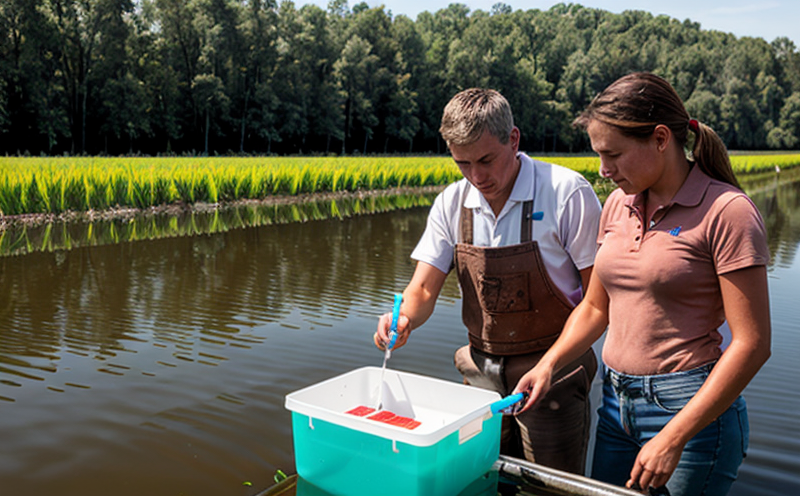pH Stability Testing in Irrigation Water
The pH of irrigation water is a critical parameter that significantly impacts crop growth and health. A stable pH ensures optimal nutrient availability, minimizes the risk of plant diseases, and prevents damage to crops from chemical imbalances. In agriculture, the pH range for most plants is between 6.0 and 7.5, with some exceptions like blueberries which thrive in a more acidic environment.
Precision in measuring and maintaining this parameter is essential because even small fluctuations can lead to significant yield losses. For instance, high pH levels can cause the leaching of essential nutrients such as iron, zinc, and manganese from the soil, while low pH levels can result in the immobilization of phosphorus, reducing its availability for plants.
Our pH stability testing service is designed specifically to address these challenges. We use state-of-the-art equipment that allows us to monitor changes in pH over time, ensuring that your irrigation water remains within an optimal range. This service is crucial not only for maintaining soil health but also for optimizing the efficiency of fertilizers and other agricultural inputs.
The testing process involves collecting samples from various points in the irrigation system at different times throughout the day to account for any variations due to evaporation, temperature changes, or interactions with soil. Our team then uses advanced spectrophotometric methods to measure pH accurately, providing detailed reports that include historical trends and recommendations for corrective actions.
By partnering with us, you gain access to comprehensive data that helps in making informed decisions about irrigation practices. This service is particularly beneficial for large-scale agricultural operations where even small improvements in water quality can translate into substantial cost savings and increased productivity.
Applied Standards
- ISO 10397:2004: pH of water intended for irrigation purposes.
- ASTM D1129: Standard Practice for Determination of pH of Water by Electrode Methods.
The application of these standards ensures that our tests are conducted in accordance with internationally recognized protocols, guaranteeing accuracy and reliability. These methods provide a consistent approach to measuring water quality parameters globally, which is essential for standardization across different regions and agricultural practices.
Scope and Methodology
| Methodology Step | Description |
|---|---|
| Sample Collection | Collection is done at various points in the irrigation system, including intake sources, distribution networks, and specific crop areas. |
| Spectrophotometric Measurement | Using pH electrodes calibrated according to ISO 10397:2004, we measure the pH of each sample. These measurements are recorded and analyzed for trends. |
| Data Analysis | The collected data is compared against set benchmarks to assess compliance with agricultural standards. Trends and anomalies are identified and reported. |
Environmental and Sustainability Contributions
- Efficient Water Use: By ensuring that irrigation water is within the optimal pH range, we help reduce waste and improve the efficiency of water usage.
- Enhanced Crop Health: Stable pH levels promote healthier plants by optimizing nutrient uptake and reducing stress factors.
Our service contributes to sustainable agricultural practices by promoting resource conservation and enhancing environmental stewardship. By minimizing waste and maximizing the effectiveness of water resources, we support a more efficient and eco-friendly approach to irrigation in agriculture.





